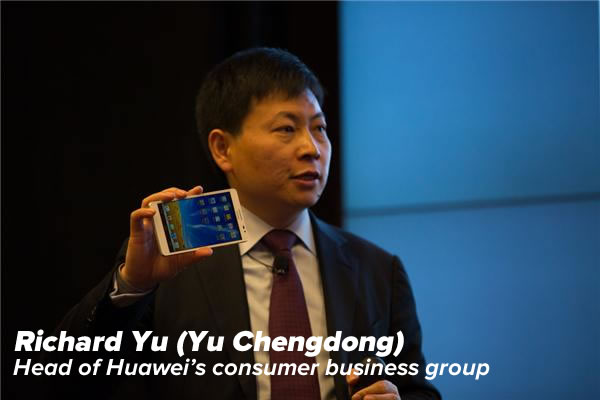
Here in North America, a good number of people have never heard of Huawei. Many people don’t even know how to pronounce their name:
In case you were wondering, Huawei is pronounced “wah-way”.
“Huawei” is the transliteration of the Chinese name 华为, which can be interpreted as “achievement for China” or “action for China”. No matter which interpretation you prefer, both are fitting, as they’re the number three mobile phone vendor in the world in terms of market share, after Samsung and Apple:
| Vendor |
2Q14 Shipment Volume |
2Q14 Market Share |
2Q13 Shipment Volume |
2Q13 Market Share |
2Q14/2Q13 Growth |
| Samsung (Android) |
74.3 |
25.2% |
77.3 |
32.3% |
-3.9% |
| Apple (iOS) |
35.1 |
11.9% |
31.2 |
13.0% |
12.4% |
| Huawei (Android) |
20.3 |
6.9% |
10.4 |
4.3% |
95.1% |
| Lenovo (Android) |
15.8 |
5.4% |
11.4 |
4.7% |
38.7% |
| LG (Android) |
14.5 |
4.9% |
12.1 |
5.0% |
19.8% |
| Others |
135.3 |
45.8% |
97.5 |
40.6 |
38.7% |
Data from IDC’s 2Q14 Quarterly Mobile Phone Tracker.
See this article for details.
Founded in 1987 and headquartered in Shenzhen, Huawei has grown to become the world’s largest maker of telecom equipment, surpassing the former leader Ericsson in 2012. They count most telecom carriers worldwide as their customers, and the next market they plan to conquer is mobile devices.
The plan seems to be working; Huawei nearly doubled their shipments from 2Q13 to 2Q14, and analysts says that Samsung should be eyeing their rear-view mirrors very carefully. They’re more of a threat to Samsung than Apple, as they’re in the same business: selling Android devices at various price points to a price-sensitive clientele.

The Wall Street Journal recently posted an interview with Richard Yu (Yu Chengdong), the head of Huawei’s consumer business group, in which he talked about Huawei’s foray into consumer devices, the advantages they have as a result of being a telecom equipment manufacturer, and their plans for using various operating systems in their smartphones: Android (yes), Windows Phone (on hold), and Tizen (“We feel Tizen has no chance to be successful”).
